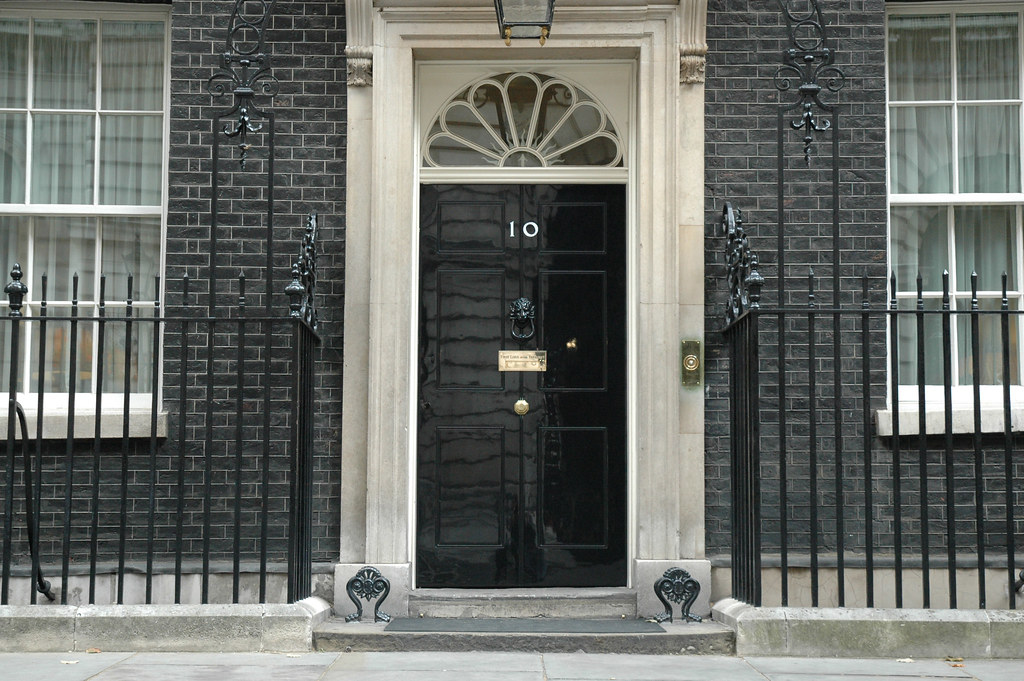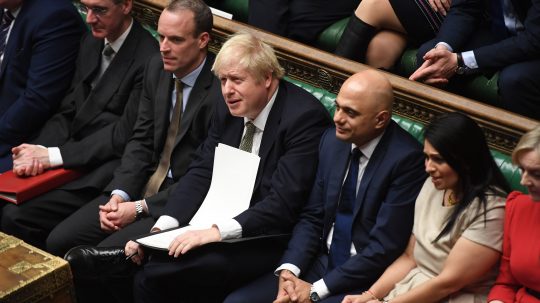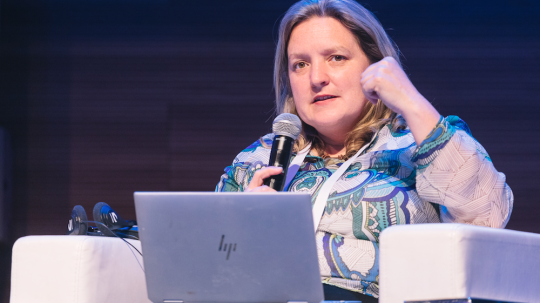All information is accurate at the time of publication.
Following Boris Johnson’s resignation as Leader of the Conservative Party last week, five Tory MPs remain in the running to become the next Prime Minister. The expectation is that these five will soon be whittled down by their fellow MPs to two, before approximately 200,000 Conservative Party members across the nation get to choose which of them will be the party’s next Leader. But what do we know so far about their human rights records and voting history?
Rishi Sunak
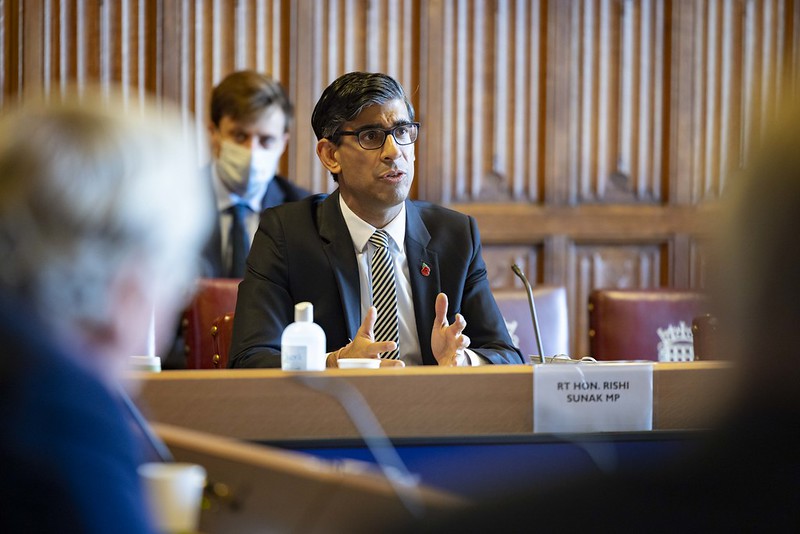
Credit: UKHouseOfLords/Flickr
Rishi Sunak who recently resigned as Chancellor of the Exchequer, leaving No 11 Downing Street, is now running to replace Boris Johnson in No 10. Here’s what we know about Sunak’s human rights record so far.
One of Sunak’s most notable moves was the introduction of the furlough scheme when the country faced national lockdowns as a result of the Covid-19 pandemic. While he was largely commended by his peers for introducing the scheme to support workers throughout the crisis, Sunak has not always voted in favour of defending the socio-economic rights of people living in the UK.
In May 2022, for example, he voted against tackling short- and long-term cost of living increases. Sunak has consistently voted for a reduction in spending on social security and has consistently voted against paying higher benefits over longer periods for those unable to work due to illness or disability. On renters’ rights and an adequate standard of living, Sunak has consistently voted for phasing out secure tenancies for life.
On immigration, Sunak has consistently voted for stronger enforcement of immigration rules and has almost always voted for a stricter asylum system. It was revealed this week that Sunak had ‘signed off’ and funded the Rwanda Asylum Partnership Agreement and intends to continue plans to send people seeking asylum in the UK to Rwanda.
In regards to privacy rights, Sunak has voted for the mass surveillance of people’s communications and activities, although he has never voted on requiring the mass retention of information about communications.
Records show that Sunak has never voted on equal rights in relation to same-sex marriage and has never voted on allowing terminally ill people to be given assistance to end their life. Sunak has ‘almost always’ voted against measures to prevent climate change and has ‘generally voted against’ laws to promote equality and human rights in the UK.
Penny Mordaunt
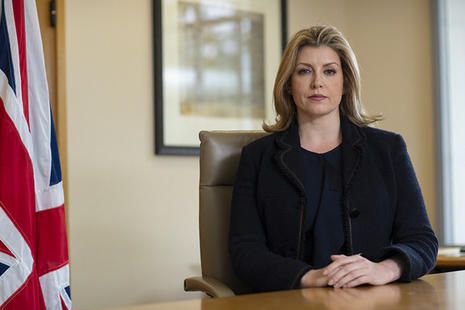
Credit: GOV.UK: Penny Mordaunt, MP
Penny Mordaunt, Minister of State at the Department for International Trade, is another candidate to replace the prime minister. In recent years, Mordaunt was Paymaster General (2020), Secretary of State for Defence (2019) and Minister for Women and Equalities (2018).
Mordaunt has recently been questioned over her stance on trans rights. She has claimed that she didn’t advocate for trans rights as Minister for Women and Equalities and denied being a ‘woke warrior’.
On governance and subsidiarity, Mordaunt voted for a veto for MPs from England, Wales and Northern Ireland over laws specifically impacting their respective parts of the UK. Mordaunt voted for Clause 1: Main provisions of the contentious Northern Ireland Protocol Bill and opposed clauses related to the movement of goods (clause 4). She has also voted against local councils having more power, as well as ‘almost always’ voting to reduce central government funding for local government. Local government plays an integral role in upholding our socio-economic rights, not least in allocating social and emergency housing.
On access to justice and privacy rights, Mordaunt has voted for restricting the scope of legal aid and voted to allow national security sensitive evidence to be put before courts in secret sessions. Mordaunt has also ‘consistently’ voted for requiring the mass retention of information about communications. Mordaunt voted against the controversial Online Safety Bill, which has now been delayed until the Autumn.
On family and reproductive rights, Mordaunt has consistently voted for allowing marriage between two people of the same sex and for equal gay rights and has voted to legalise abortion in certain circumstances in Northern Ireland.
Liz Truss
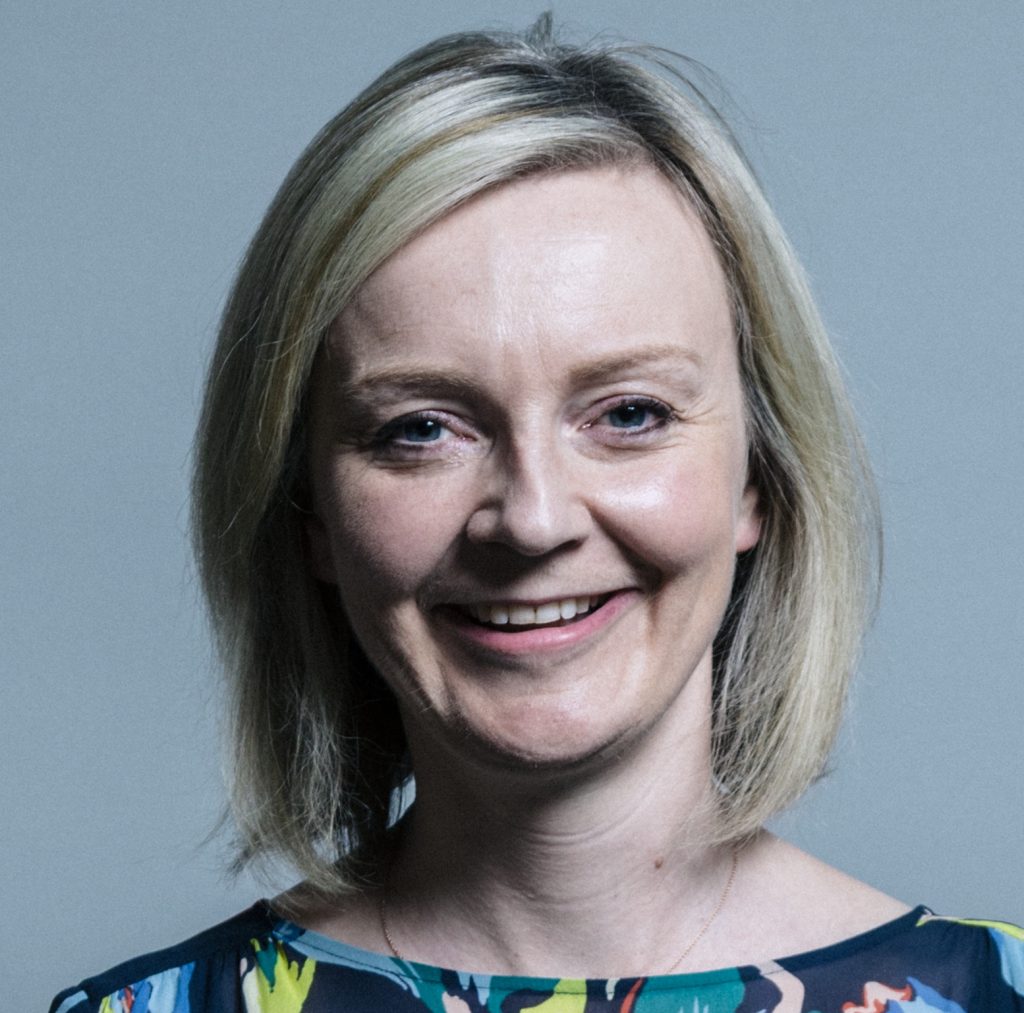
Credit: UK Parliament: Liz Truss.
Liz Truss, Foreign Secretary, is also in the running to replace Boris Johnson as Conservative Party Leader and Prime Minister. Record show that under the current government, she has never rebelled against the party majority.
Truss did not resign from government when 60 other ministers did, following a confidence vote in Boris Johnson which divided the cabinet. She stated that she did not resign as Foreign Secretary because she is a ‘loyal person’. As Foreign Secretary, Truss has defended government failure to protect human rights in the UK and beyond. Most recently, Truss defended the government’s failure to challenge human rights abuses during ongoing trade negotiations with Gulf States.
On the European Union and human rights, Truss voted against retaining the EU Charter of Fundamental rights as part of UK law following Brexit. She remains a member of the government which proposes to repeal the Human Rights Act and replace it with a new Bill of Rights. Recently, Truss told fellow Tory MPs that she: “is prepared to pull the UK out of the European Convention on Human Rights if reforms aimed at reducing the influence of judges in Strasbourg are not successful”. The proposed Bill of Rights would make justice less accessible and deflect scrutiny from the government as well as make deportations easier.
On socio-economic rights, Truss has consistently voted against raising welfare benefits at least in line with prices and consistently voted against paying higher benefits over longer periods for those unable to work due to illness or disability. She has also voted for phasing out secure tenancies for life and almost always voted in favour of increasing the rate of Value Added Tax (VAT).
On access to justice and privacy, Truss has voted for restricting legal aid and voted in favour of allowing national security sensitive evidence to be put before courts in secret sessions and out of the eye of the media. On privacy rights, Truss voted in favour of the mass surveillance of people’s communications and activities.
On migration, Truss has ‘generally’ voted against the right to remain for EU nationals already living in the UK and has ‘consistently’ voted for stricter asylum laws as well as the stronger enforcement of immigration rules.
In terms of equality rights, Truss has ‘almost always’ voted for equal rights for gay people and voted to permit same-sex marriage in Northern Ireland. Truss’s record shows that for the votes she has been present for she has voted in favour of equal rights and on one occasion was absent when a vote took place to legalise abortion in certain circumstances in Northern Ireland.
Kemi Badenoch
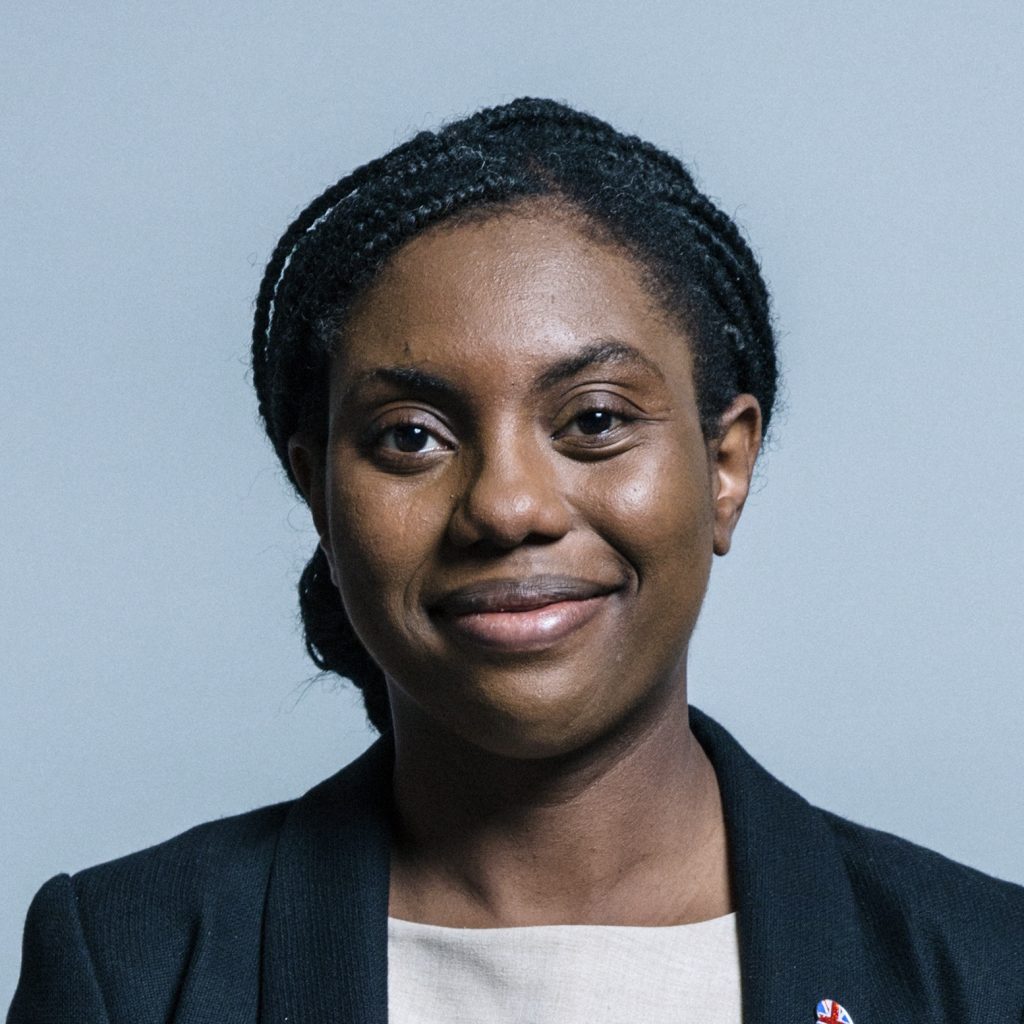
Credit: UK Pariament: Kemi Badenoch.
Kemi Badenoch, until recently, Minister of State for Levelling Up and for Equalities, is also in the running to be the next prime minister. Badenoch has received attention from fellow MPs and the media after her public attack on Nadine White, The Independent’s Race Correspondent. Badenoch has been described by the media as ‘never far from controversy’, following a series of contentious public interactions.
On government and devolution, Badenoch has consistently voted for reducing central government funding for local government and recently voted in favour of the Northern Ireland Protocol Bill.
On privacy and equality, Badenoch recently voted against the Online Safety Bill, which she has criticised in strong terms.
Letters obtained in an investigation by Vice earlier this week, revealed that whilst in her position as equalities minister, Kemi Badenoch and Marcial Boo, chief executive officer of the Equality and Human Rights Commission (EHRC), wrote to the Financial Conduct Authority (FCA) to question its plans to allow trans people to ‘self-identify as male or female in their workplaces’.
Investigative Journalist and Senior Reporter at Vice News wrote: “The letters were obtained via whistleblowers after the UK government, FCA and EHRC all blocked freedom of information requests on the grounds that revealing the information “could seriously undermine the FCA’s regulatory function.”
Records indicate that Badenoch has never voted on equal gay rights and has never voted on allowing marriage between two people of the same sex.
In terms of immigration and healthcare, records indicate that Badenoch has ‘consistently’ voted for a stricter asylum system. On access to healthcare, Badenoch has voted in favour of reforming the NHS so GPs buy services on behalf of their patients.
Tom Tugendhat
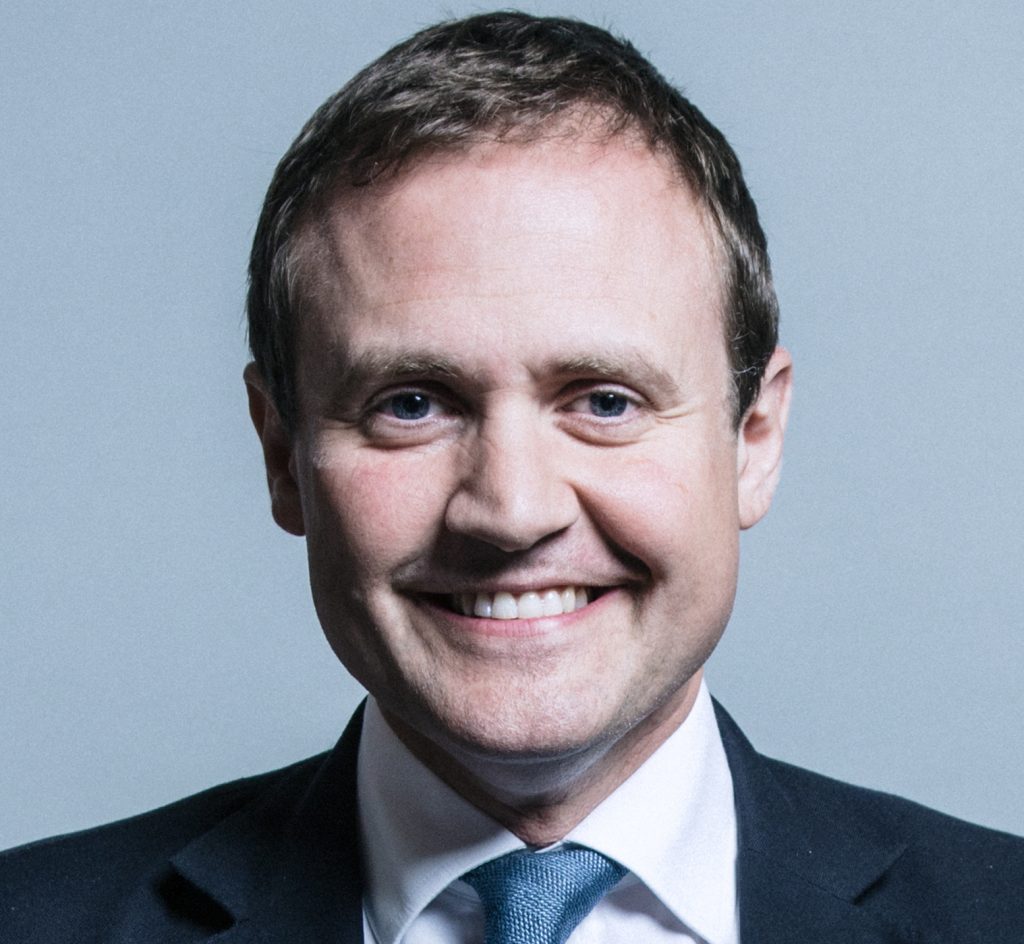
Credit: UK Parliament: Tom Tugendhat.
Tom Tugendhat, MP for Tonbridge and Malling, is the Chair of the Foreign Affairs Select Committee, a Member of the Committee on Arms Export Controls and a Member of the Joint Committee on National Security Strategy. He is well known in parliament for campaigning for the UK to remain in the European Union.
Tugendhat recently made headlines for a scathing letter sent to rail union bosses in which he referred to them as “acting like dictators”. The letter, sent to RMT chief Mick Cash and Aslef leader Mick Whelan, stated: “[The strike] It is dictatorial, elitist and wrong.” It’s also reported that Tugendhat called the strikes shameless: “This is shameless — a cynical move to increase your power base at the expense of every single passenger using the network,” he stated. He is reported as sometimes rebelling against the party whip.
On housing, social security and education, he has voted for phasing out secure tenancies for life and consistently voted for a reduction in spending on welfare benefits. Regarding freedom of speech, Tugendhat voted no on clauses on the Higher Education (Freedom of Speech) Bill, including voting against appointing a Director for Freedom of Speech and Academic Freedom.
In terms of immigration, Tugendhat has consistently voted for a stricter asylum system and voted in favour of stronger enforcement of immigration rules.
On matters of healthcare, Tugendhat voted for reforming the NHS, meaning that GPs would buy services on behalf of their patients. In terms of assisted dying, he has previously voted against allowing terminally ill people to be given assistance to end their life.
In regards to privacy and equality rights, he has continually voted for mass surveillance of people’s communications and activities and voted in favour of the controversial Public Order Bill. Records show that Tugendhat has voted in favour of equal gay rights and same sex marriage in the past.
Over the weekend, a series of televised debates between the five candidates will take place. Conservative MPs then plan further rounds of voting next week until two candidates are left, prior to parliament’s suspension for recess on 21 July. Then, the last two candidates will enter a six-week campaign which will see them travel across the UK in a bid to get elected by Tory party members as the next Prime Minister of the UK.

